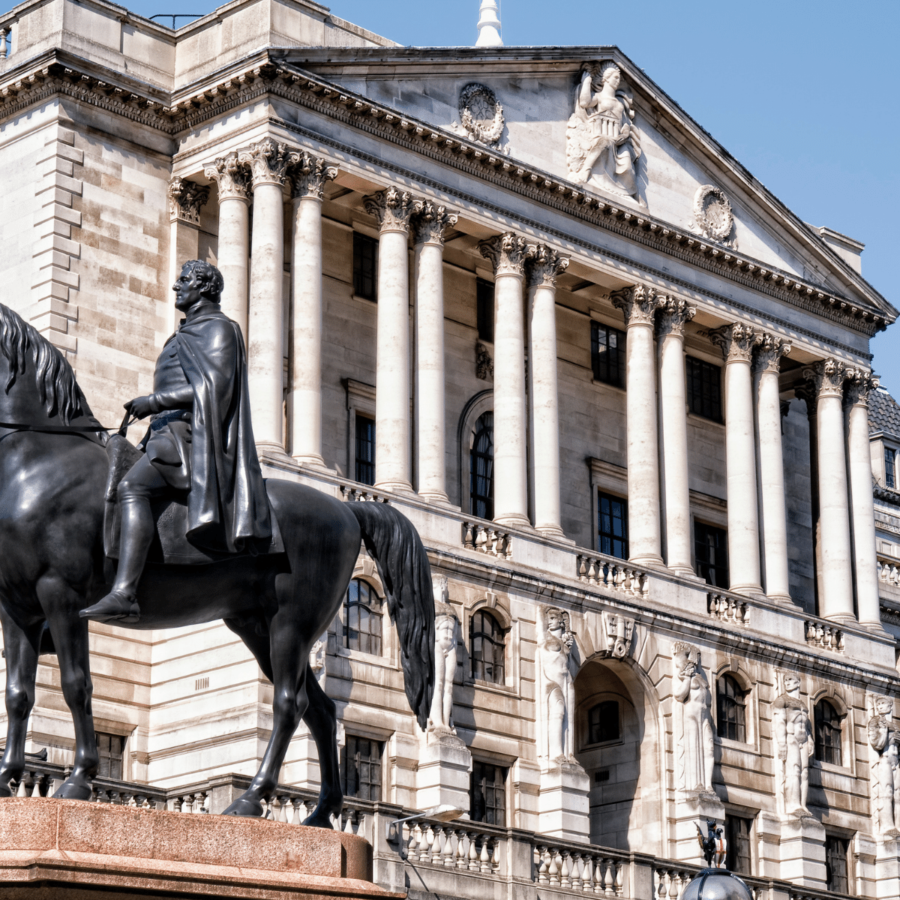Should the MPC Have Acted Differently To Control Inflation?
With UK inflation running at 9%, and likely to rise further as the year progresses, the spotlight has fallen Bank of England’s Monetary Policy Committee (MPC). In this Monday Interview, Professor Stephen Millard asks ex-MPC member and NIESR Visitor Dr Andrew Sentance for his thoughts on the recent performance of the Committee and what they should do next.

The Monetary Policy Committee has come in for much criticism of late. Do you think that had they raised rates in 2021, we would not be seeing the 9% inflation rate we are now?
There was a strong case for starting the process of raising interest rates in the summer of last year, about 6 months before the MPC started its very tentative rate rises. Last summer was when the inflation rate rose above the 2 percent target level and it was already clear that it was set to go higher, even though the MPC badly underestimated the momentum behind the current inflation surge. The economy was also bouncing back last summer as lockdown restrictions were eased – a process which was completed in mid-July.
Against that background, keeping the official Bank Rate at the emergency level of 0.1 percent set in March 2020 was clearly inappropriate and the MPC was slow to wake up to the threat of higher inflation. Earlier and more significant rises in UK interest rates in the second half of 2021 would have had three main impacts on keeping down inflation.
First, it would have acted to counter the weakness of sterling, which has aggravated the rise in imported energy and food prices and other components and materials used by manufacturers.
Second, it would have dampened domestic demand pressures which have been adding to the global energy and food price surge. This would have been particularly important in the labour market which is currently very tight in the UK – with vacancies now exceeding the number of unemployed people looking for jobs.
Third, more decisive action by the MPC would have moderated the upward drift in inflation expectations which has been fuelled by the inaction of the MPC in the second half of last year. These three counter-inflationary forces would not have prevented inflation rising but would have kept a stronger check on the inflation surge we have already seen – and is now likely to take UK CPI inflation into double-digit territory.
Quantifying these impacts on inflation is complex, so we can’t be clear how far the surge in inflation could have been curbed by earlier interest rate rises. But a good rule of monetary policy action is that “a stich in time saves nine”. That is a rule which seems to have been forgotten by the MPC recently.
Where does the large expansion of the Bank of England’s balance sheet via QE fit into this story? Should the MPC have reversed the ‘extraordinary’ measures put in place at the start of the pandemic?
The financial impact of additional QE in the second half of last year was quite small in relation to the total amount of money creation generated by QE injections since 2009. However, halting or starting to reverse QE last year would have provided a strong signal of the MPC’s intention to moderate the inflationary surge we are now experiencing. That would have helped support sterling and limit the upward drift in inflation expectations. Just as the initial injections of QE in 2009/10 helped to stem the decline in business and financial market confidence during the Global Financial Crisis, so an earlier withdrawal of QE could have boosted confidence in the MPC’s inflation-fighting credentials.
There are parallels here with the reluctance of the MPC to withdraw monetary stimulus after the Global Financial Crisis (GFC). The first serious opportunity to do so was supported by MPC members Martin Weale, Spencer Dale and myself back in early 2011. Two years on from the depths of the GFC, there was an opportunity to ease the UK economy away from extreme stimulatory monetary policies, but this opportunity was not taken. Subsequent opportunities to do the same thing – in 2013/14, 2015/16 and 2018/19 were missed. We experienced a “lost decade” of monetary policy inaction from the early 2010s and the same approach from the MPC has continued since then.
So why do you think the MPC did not tighten policy earlier than December 2021?
The short answer is that there was an era of “groupthink” on the MPC, going back many years. We haven’t seen strong dissenting voices on the MPC for many years now, and this continues a pattern established since Mark Carney became Governor. When I served on the MPC from 2006 to 2011, there was always an active debate on the future course of monetary policy which is reflected in the minutes of the Committee meetings from that era and some close votes. That era of active debate faded away in the mid-2010s and has yet to be re-established, though it was interesting to see 3 dissenters arguing for a bigger rate rise at the May meeting.
These MPC “rebels” need to organise themselves better and mount a stronger critique of the timid monetary policy tightening being advanced by the Governor Andrew Bailey and his supportive Deputy Governors. I look forward to a more robust debate on the future of UK monetary policy on the MPC but I am not optimistic without changes in the appointment process which allows individuals who do not follow the Bank “groupthink” to be appointed to the MPC.
Who should we be looking for to provide this challenge to existing MPC views? First, we need more independent economists on the MPC – people who have a reputation for standing out as strong individuals giving their views in their recent career. Second, we should be looking to appoint genuine business economists – people who understand the business world and will bring the benefit of that experience to the MPC. Third, we need people who have not worked in government earlier in their recent career, either directly or indirectly. Connections to gov’t from MPC members undermine the independence of the MPC.
Looking forward, the market curve has rates rising to 2.5% by April of next year with a possible further rise in around August 2022. Do you feel that’s enough to bring inflation down, or should the MPC be tightening more aggressively over the coming months?
I definitely think that the MPC should be tightening more aggressively in the next few months to send a clear signal that the Bank of England is determined to get on top of current inflationary pressures. There is a lot of inflation still coming through the pipeline and the UK labour market remains very tight. Inflation expectations are very high – pointing to the increased risk of a wage-price spiral.
Two half-point rises to move rates up to 2 percent by the autumn would be fully justified. And I would support a rise to 3 percent or higher by the spring of 2023. Market expectations are already moving in this direction.
In the period since the Global Financial Crisis, the MPC has been used to juggling its policy response based on small differences in the growth and inflation outlook. That era is now over and the prospect of double digit inflation takes us into monetary policy territory we have not experienced since the 70s, 80s and early 90s.
More important than the exact level of interest rates is the attitude and intent of the MPC and its willingness to carry through a clear inflation-fighting agenda. We need a significant shift in the language and intent of the MPC from their position in the mid-2010s. And if that mindset changes, the exact level of interest rates we end up with will depend on how the UK and the global economy performs in the next 2 to 3 years.
In many respects, the “inflation genie” is already out of the bottle. We can’t be clear now where this will lead. But what we do need is a different attitude from the MPC as our inflation watchdog. Instead of sitting on their hands, as they did in the second half of last year, we need an MPC which will be proactive and act to counter inflationary threats. We have not seen the MPC acting in this way since 2006/7, so it will need a shock to the system – and a change to key personnel on the Committee if necessary – to deliver a significant change in the Committee’s performance.

















